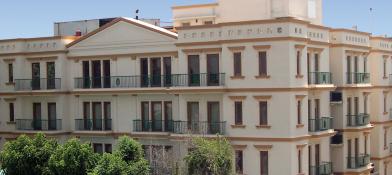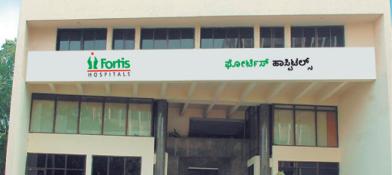Nuclear stress test
Overview:
A nuclear stress test is a type of stress test done to diagnose and monitor cardiac problems. It is done to understand the flow of blood into the arteries when at rest and during physical activity. This test is mainly indicated for coronary artery disease (CAD). It can be done as an initial test or after the routine exercise test.
The required nutrients such as blood oxygen are supplied by coronary arteries. When there is damage to these arteries coronary artery disease develops.
Principle
The imaging test is done to see the blood flow into the heart at rest and during activity. For this test, a medicine called the tracer, or a radioactive tracer is injected into the body through a vein. When the tracer is active, a special camera takes pictures of the heart to trace the movement of the radioactive tracer in the blood vessels. These pictures give information regarding the blood flow in the heart.
The pictures are taken with the help of a scanner called the Positron emission technology (PET) scanner or a single photon emission computed tomography (SPECT) scanner. Hence the nuclear stress test is also called as Cardiac PET study, Cardiac SPECT study, or Myocardial perfusion imaging study.
There are two steps to this test. The first one is the resting part where images are taken at rest. The second is the stress part where images are taken during stress. This stress can be in the form of exercise or by using medications that increase the stress on the heart. The exercise stress test is done by running on a treadmill. Pharmacologic interventions in the form of medications that increase the stress on the heart are also used to determine the blood flow during stress.
Indications:
The nuclear stress test is mainly done to diagnose the CAD and also to provide a treatment plan to the patient. The clinical conditions in which the nuclear stress test is indicated are:
- Suspected Coronary artery disease.
- Those with chest pain suggestive of angina and those who have difficulty in breathing.
- Previous history of CAD
- In a heart condition called acute coronary syndrome, bundler branch blocks, and congestive heart failure.
- In patients with previous bypass surgery which was done 5 years back or percutaneous coronary intervention done 2 years back.
Contraindications:
Certain heart diseases that can worsen the heart condition like uncontrolled angina, aortic dissection, and stenosis, arrhythmias, congestive heart failure, infections of the heart, pulmonary embolism are not indicated for nuclear stress test.
Advantages:
This test has the advantage of determining the blood flow to the heart. It helps to understand the condition of the heart muscles and their pumping capacity. It has the advantage of locating any blockage in the arteries and to identify the damage in the heart done due to any disease.
Before the procedure:
Before undergoing a nuclear stress test an individual should give a history of the medications like blood thinners, over the counter, or any herbal medications that are taken and a history of allergies to contrast. Instructions will be given regarding the medications to be taken before the test. An individual should also give information regarding their pregnancy status.
Diet and smoking are the factors that can affect nuclear test results. Hence, it is advisable not to smoke, vape, or take alcohol, caffeine, carbonated drinks, or highly processed foods at least 24 hours before the test. It is better to avoid even decaffeinated drinks before the test. An individual has to stop eating anything at least 3-6 hours before the test.
During the procedure:
Nuclear stress tests can be done in one or two days. A 1-day test takes 4-5 hours and a 2-day test may take less time each day but distributed on two days. After cleaning with antiseptic solution an intravenous line will be placed in the vein of the arm to give radioactive tracer. Heart rhythm will be checked before and during the test. Special stickers called electrodes will be placed on the arm, legs, and chest area and is connected to a machine that determines the electrical activity. Blood pressure will also be monitored before and during the procedure.
- Resting part: The individual will be asked to lie on a table after a short waiting period to take the images of the heart.
- Stress Part: The individual is asked to walk or run on a treadmill by slowly increasing the intensity. In some cases, medications might be given to increase the blood flow to the heart if the individual cannot exercise. The tracer will be injected again and images will be taken.
One will be constantly monitored for the development of any symptoms. One should inform the healthcare professional if any symptoms like pain or discomfort, shortness of breath, leg pain, vomiting sensation, tiredness, dizziness, or headache develop.
After the procedure:
One can return to daily activities after the test. Instructions to drink plenty of water will be given to get rid of the tracer from the body.
Interpretation of the results:
The results will be presented as normal if there is normal blood flow to the heart, the functioning of the heart is normal, and the risk of heart attack is low. Abnormal results indicate that the blood flow or the functioning of the heart is improper, or the risk of heart attack is high which indicates further investigations.
Risks and contraindications:
The test is generally safe but may carry certain risks like the development of severe chest pain leading to arrhythmia, heart attack, or low blood pressure.
Conclusion:
Nuclear stress test is used to diagnose and monitor blood flow in conditions like coronary artery disease. By tracing the blood flow, necessary information regarding the functioning of the heart is obtained. A nuclear stress test is vital in guiding the treatment of heart diseases for better patient outcomes.
Popular Searches :
Hospitals: Cancer Hospital in Delhi | Best Heart Hospital in Delhi | Hospital in Amritsar | Hospital in Ludhiana | Hospitals in Mohali | Hospital in Faridabad | Hospitals in Gurgaon | Best Hospital in Jaipur | Hospitals in Greater Noida | Hospitals in Noida | Best Kidney Hospital in Kolkata | Best Hospital in Kolkata | Hospitals in Rajajinagar Bangalore | Hospitals in Richmond Road Bangalore | Hospitals in Nagarbhavi Bangalore | Hospital in Kalyan West | Hospitals in Mulund | Best Hospital in India | | Cardiology Hospital in India | Best Cancer Hospital in India | Best Cardiology Hospital in India | Best Oncology Hospital In India | Best Cancer Hospital in Delhi | Best Liver Transplant Hospital in India
Doctors: Dr. Rana Patir | Dr. Rajesh Benny | Dr. Rahul Bhargava | Dr. Jayant Arora | Dr. Anoop Misra | Dr. Manu Tiwari | Dr. Praveer Agarwal | Dr. Arup Ratan Dutta | Dr. Meenakshi Ahuja | Dr. Anoop Jhurani | Dr. Shivaji Basu | Dr. Subhash Jangid | Dr. Atul Mathur | Dr. Gurinder Bedi | Dr. Monika Wadhawan | Dr. Debasis Datta | Dr. Shrinivas Narayan | Dr. Praveen Gupta | Dr. Nitin Jha | Dr. Raghu Nagaraj | Dr. Ashok Seth | Dr. Sandeep Vaishya | Dr. Atul Mishra | Dr. Z S Meharwal | Dr. Ajay Bhalla | Dr. Atul Kumar Mittal | Dr. Arvind Kumar Khurana | Dr. Narayan Hulse | Dr. Samir Parikh | Dr. Amit Javed | Dr. Narayan Banerjee | Dr. Bimlesh Dhar Pandey | Dr. Arghya Chattopadhyay | Dr. G.R. Vijay Kumar | Dr Ashok Gupta | Dr. Gourdas Choudhuri | Dr. Sushrut Singh | Dr. N.C. Krishnamani | Dr. Atampreet Singh | Dr. Vivek Jawali | Dr. Sanjeev Gulati | Dr. Amite Pankaj Aggarwal | Dr. Ajay Kaul | Dr. Sunita Varma | Dr. Manoj Kumar Goel | Dr. R Muralidharan | Dr. Sushmita Roychowdhury | Dr. T.S. MAHANT | Dr. UDIPTA RAY | Dr. Aparna Jaswal | Dr. Ravul Jindal | Dr. Savyasachi Saxena | Dr. Ajay Kumar Kriplani | Dr. Nitesh Rohatgi | Dr. Anupam Jindal
Specialties: Heart Lung Transplant | Orthopedic | Cardiology Interventional | Obstetrics & Gynaecology | Onco Radiation | Neurosurgery | Interventional Cardiology | Gastroenterologist in Jaipur | Neuro Physician | Gynecologist in Kolkata | Best Neurologist in India | Liver Transfer































